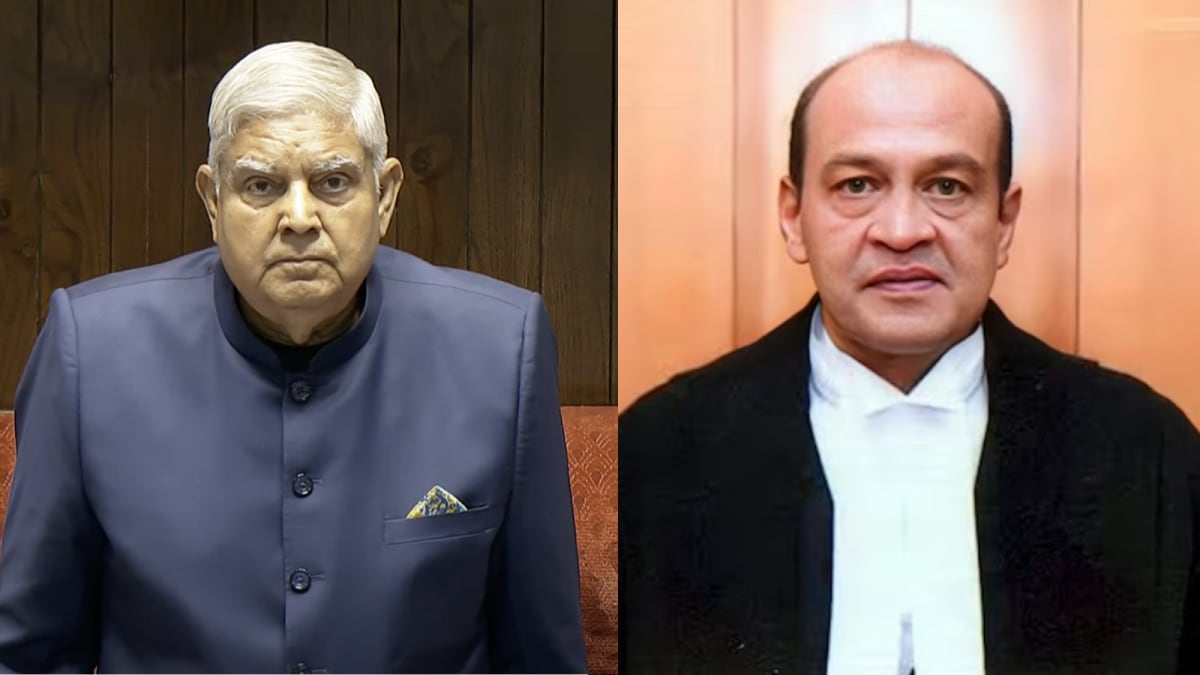 |
|
Vice President Jagdeep Dhankhar has ignited a significant controversy by publicly questioning the absence of a First Information Report (FIR) regarding the discovery of a substantial amount of burnt cash at the residence of High Court Justice Yashwant Varma. Dhankhar's remarks, delivered during an address to the 6th batch of Rajya Sabha interns, have thrust the judiciary's handling of the matter under intense scrutiny. His core argument centers on the apparent disparity in treatment between an ordinary citizen and a high-ranking judicial official when it comes to initiating legal proceedings in response to a potential crime. He contends that had such an incident occurred at the home of a regular individual, the police response would have been immediate and decisive. The delay in filing an FIR, in this case, raises serious questions about whether a certain segment of society enjoys de facto immunity from prosecution, a notion that Dhankhar finds deeply troubling. He explicitly stated that it is time to expose any hidden issues surrounding this case so that cleansing can take place and the public can know the truth. His comments suggest a deep-seated concern that the judiciary, while essential for upholding the rule of law, may be inadvertently creating a perception of preferential treatment, eroding public trust in the institution. The vice president's pointed questions have triggered a wider debate about the extent of judicial independence and the mechanisms for ensuring accountability within the judiciary. While recognizing the importance of safeguarding the judiciary from undue influence and interference, Dhankhar cautioned against interpreting independence as an 'impregnable cover' against legitimate inquiry and investigation. He asserted that granting total immunity can lead to the degeneration of institutions and individuals, ultimately undermining the very principles of justice and fairness that the judiciary is sworn to uphold. He emphasized that institutions thrive on transparency and scrutiny and argued that guaranteeing no inquiry can lead to degeneration. The case involving Justice Varma has become a flashpoint in this broader debate, highlighting the delicate balance between protecting judicial independence and ensuring that all individuals, regardless of their position, are subject to the same legal standards.
Dhankhar further challenged the existing procedural framework for registering an FIR against a sitting judge. He highlighted the cumbersome constitutional process involved, contrasting it with the straightforward process for initiating legal action against other constitutional functionaries, including himself. He pointed out the apparent anomaly that even he, as Vice President, is not exempt from an FIR, whereas the registration of an FIR against a judge requires prior approval from the judiciary. This perceived disparity in treatment raises fundamental questions about the equality before the law and whether the current system inadvertently creates a barrier to investigating potential misconduct within the judiciary. The vice president argued that every cognizable offense must be reported to the police and failure to do so constitutes a crime. He then stated the question that he believes many are asking, “You may wonder why no FIR has been filed yet.” This highlights a perceived double standard and a lack of transparency in how the legal system handles allegations against judges. The lack of an FIR, according to Dhankhar, effectively prevents any meaningful investigation from taking place. He asserted that no special permission should be required to investigate a potential crime, regardless of the individual involved. His comments underscore the need for a more streamlined and transparent process for addressing allegations of misconduct within the judiciary, one that ensures accountability without compromising judicial independence. The ongoing in-house probe, initiated by the Supreme Court, has also come under Dhankhar's scrutiny. He questioned the legal standing of the three-judge panel, noting that it was not established under any constitutional provision or law. He pointed out that the committee's findings are merely recommendations, and any substantive action against a judge ultimately requires parliamentary approval. This raises concerns about the effectiveness and legitimacy of the in-house probe as a mechanism for ensuring accountability. The vice president's remarks suggest a need for a more robust and transparent process for investigating allegations of judicial misconduct, one that is grounded in established legal principles and subject to appropriate oversight.
The incident involving Justice Varma has drawn national attention, particularly given the sensitivity surrounding judicial integrity and the potential for any perceived compromise to undermine public confidence in the legal system. The Supreme Court's decision to order an in-house probe underscores the gravity of the situation and the need for a thorough and impartial investigation. Justice Varma's subsequent repatriation from the Delhi High Court to his parent high court in Allahabad further highlights the seriousness of the allegations. Dhankhar, emphasizing the importance of transparency and accountability, referred to a Lokpal bench decision claiming jurisdiction to investigate corruption complaints against high court judges. While the Supreme Court stayed this order, citing judicial independence, Dhankhar argued that independence should not be an excuse to avoid inquiry, investigation, or probe. He reiterated his stance that institutions thrive with transparency and scrutiny, while guaranteeing no inquiry can lead to degeneration. The vice president's comments have sparked a vigorous debate about the balance between judicial independence and accountability, raising fundamental questions about the appropriate mechanisms for ensuring that judges are held to the highest ethical standards. He has challenged the status quo, pushing for greater transparency and scrutiny within the judiciary. His assertions reflect a growing concern that the current system may not be adequately equipped to address allegations of misconduct, potentially eroding public trust in the legal system. His call for transparency and accountability resonates with a broader desire for greater openness and integrity in all branches of government. The outcome of the Justice Varma case, and the broader debate it has ignited, will likely have significant implications for the future of judicial accountability in India.
Source: ‘Time To Blow Up Can Of Worms’: Dhankhar Slams Lack Of FIR In Justice Varma’s Cash Recovery Row
